Rev Karen J. Harding is living in New Brunswick, Canada, and is a missionary to Haiti. She has done extensive research in exclusion and authenticity.
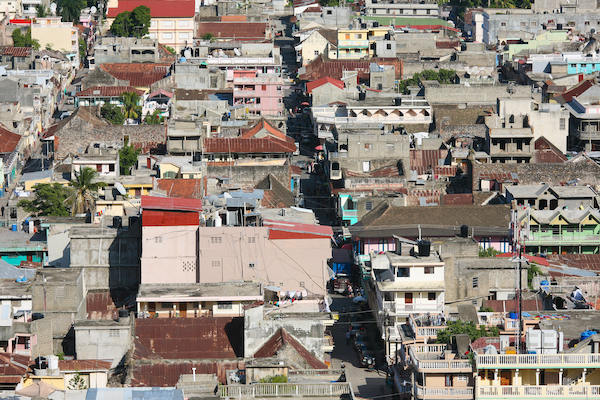
Incredibly profound words were spoken directly to me when I first arrived in Haiti in 2017. A Haitian student had heard about my research on exclusion and was anxious for a meeting. My previous study had involved placing practices of exclusion within categories and yet, what I heard from this Haitian was that Haiti, as a nation, felt the exclusion of the entire world. He stated that their only hope was that they “knew” God loved them. I was speechless. Was there not a history of benevolence toward this third world country … the poorest in the western hemisphere?
I travelled all over Haiti with a team of doctors during my first month in the country. I soon realized that I was expected to be the sole provider of food, gas, lodging, vehicle repairs, etc., and that being given this role was commonplace. While this was difficult for me, being widowed and on a very limited income, I felt as though something so much greater than the loss of personal dignity or finances was about to be made known.
Every time we drove past a mission dwelling, one of the Haitians would point, saying, “They did not come here for us.” I felt offended and kept my feelings to myself, but after hearing the same words from various Haitians all over the country, I finally asked, “Why do you say such things? Missionaries have left the comforts of home in the United States and Canada to come here to try to make a difference. Can’t you understand the level of sacrifice?”
Well, I was not prepared for what came next. The Haitians explained that the mission fortresses, with their concrete walls and armed guards at the entrances, housed white people who seldom cared to leave the comforts of their fortresses to buy food at the local markets or to try to get to know neighbouring Haitians. The Haitians were often very upset about the constant expansion of the mission’s territory as a result of government grants being used to purchase more land. The Haitians viewed these missions as vacation spots for an established NGO (non-governmental organization). These missions would build hospitals, schools and churches but Haitian doctors and teachers working there made miniscule wages. Locals attended the missions’ churches, but little personal ministry occurred.
Everywhere I went in Haiti was a unique experience. Travelling with doctors, I often witnessed malnutrition and myriad bulbous tumours. The Haitian children were exhibiting orange hair and dehydration. Every food package I had brought along for distribution was devoured very quickly. While witnessing this incredible suffering, however, I experienced an infectious joy and genuine hospitality emanating from the Haitian people. My heart was full as so many children tried to sit on my lap. Their mothers, who I was told were usually very hesitant to respond to a white woman, embraced me warmly upon receiving scarves for their hair that I had brought with me. These experiences were deeply life changing and I could not help but wonder what may be coming next.
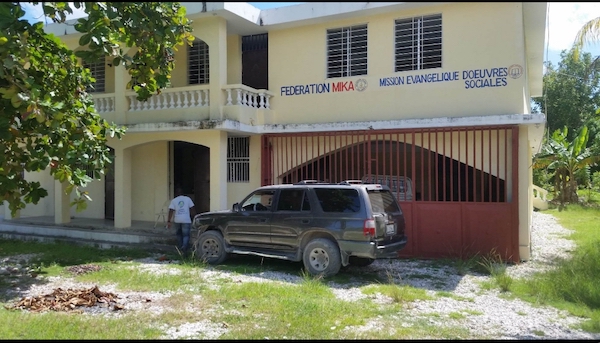
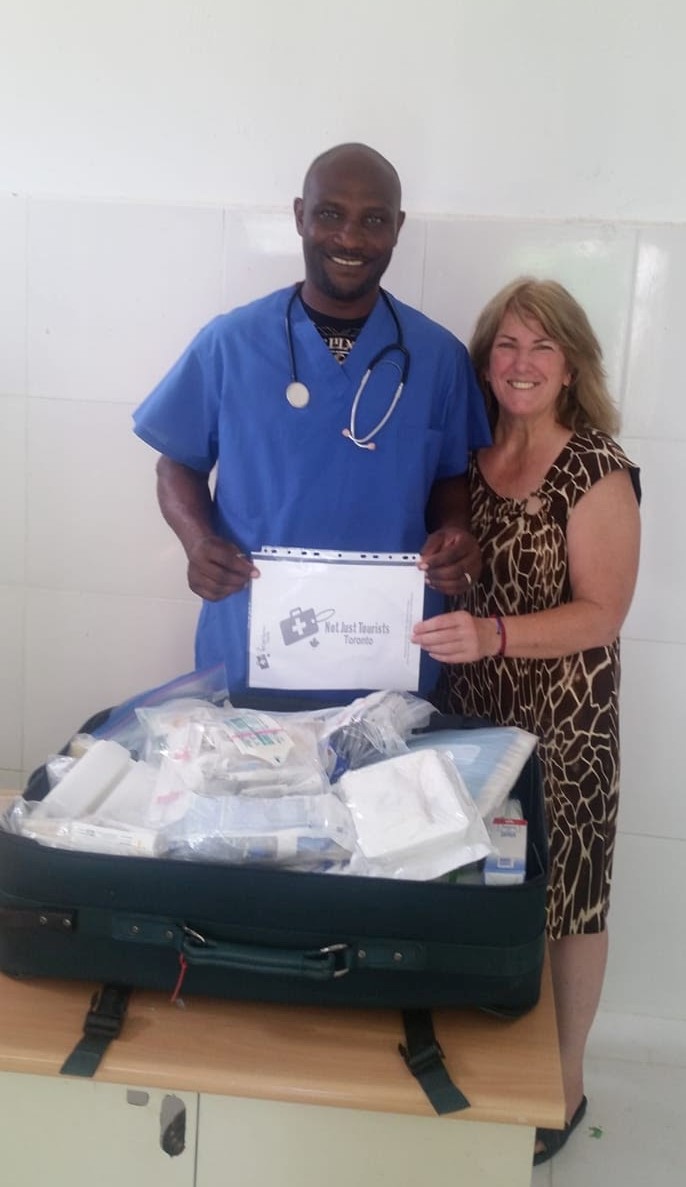
I was told by one of the doctors that I should meet a pastor in Glaise, Haiti. That suited me as I was wondering why I was on this medical team. I had studied pastoral theology for years, but it seemed as though these doctors wanted me to be aware of everything that was normally under the radar of any international news concerning Haiti. I was informed that ninety-two percent of sexually active women in Haiti had developed cervical cancer and that, with no MRIs, chemotherapy or radiation available, the women would probably only live another ten years. I petitioned our government for help, only to be told that the high degree of cervical cancer is a common problem amongst third world countries and that governments worldwide have simply decided to do nothing. I contacted Health Canada and offered to transport medication necessary to vaccinate children against HPV, but was told that too much money would be lost if proper refrigeration was not available.
It was so easy to become overwhelmed but God always has a plan and my heart was full of love for the Haitian people. We journeyed on as a team and climbed a very steep hill to meet with the pastor and his wife in Glaise.
Back in 1999, I had spent many hours praying for my husband, David, who was on dialysis for glomerulonephritis. He was dying, and as I gathered with a prayer team from Nigeria and prayed silently, the Holy Spirit spoke to my heart that I was to be a “type of Moses.” I was determined not to share that with the prayer group but, as soon as I had decided to remain silent, the person next to me spoke out the same word and later told me that this word from God was for me. I was completely bewildered as to what this could mean, and decided to simply put it “on a shelf.” It seemed to have no relevance to my prayers for my sick husband. I simply felt that God would have to work it all out if I was ever to fill a role that entailed being a “type of Moses.” I chose to just let it be.
What was interesting was reaching the top of the hill in Glaise, and being told to sit in a circle of very rickety metal chairs while waiting for the arrival of the pastor and his wife. My interpreter was seated on my right and as the pastor and his wife sat down amongst us, the pastor turned immediately to the man on his right and spoke in Creole. It was interpreted as, “Just as God sent Moses into Egypt to rescue his people, so today we have a Moses among us!” He then turned and pointed directly at me and, of course, I nearly fell off my chair. The words spoken to me back in 1999 were being repeated in 2017. What was God up to?
Upon returning to Canada, I was confronted with advertising everywhere for immigrants wanted for positions in the Atlantic provinces. I started attending Immigration Summit meetings here in New Brunswick to promote the benefits of sponsoring Francophone Haitians to live and work in New Brunswick. I was told, however, that the government was not a charity and that if I could get the Haitians here, there would be lots of interest in the CVs of Haitian nurses and teachers. I was encouraged to inform the Haitians that they simply had to do their research on the website, www.nbjobs.ca, and contact potential employers. It was obvious to me that my government did not understand that Haitians had very little internet, electricity, laptops or money.
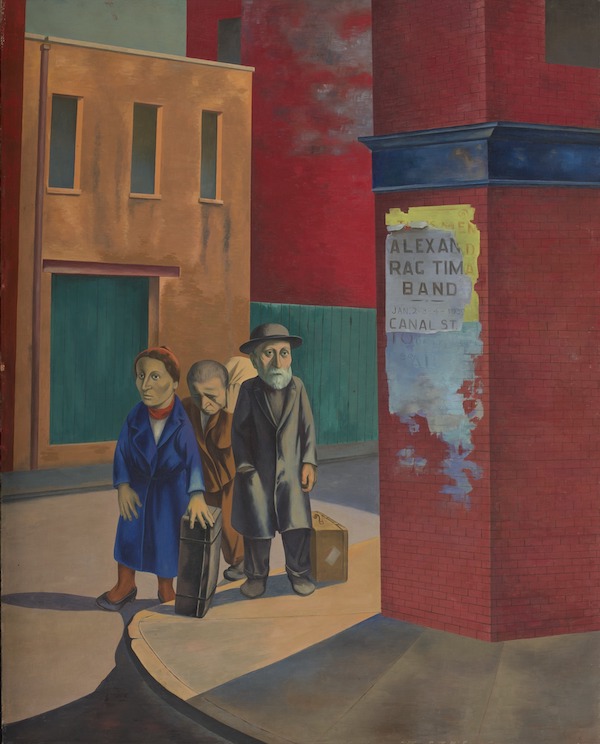
I have contacted over fifty businesses, universities, factories, etc., across New Brunswick in the last five years. I have been on the radio and have been interviewed for television. Our French culture needs augmentation and I have CVs from many French-speaking Haitian citizens who would love to come to New Brunswick to live, work and stay. The Haitians are even willing to pay back our federal government for any expenses incurred in bringing them to Canada as refugees. I was told, however, that Haiti is not a preferred country. It seems that if you are poor, black and from a failed state, as some would argue, you are totally excluded by the rest of the world. How am I to be a type of Moses if the rescue of Haitians is not recognized as critical?
Further evidence in support of Haitians feeling excluded is that donors from Canada can no longer receive tax receipts when donating to Haitians, if the missionary is not able to go there and provide official receipts to detail how the donated money has been spent. Currently, it is impossible to fly into Port au Prince as a single woman with up to six suitcases of humanitarian aid. I would be a prime target for kidnappers and my life would be in danger. Additionally, official receipts are very difficult to obtain in Haiti, even while I am there. Unfortunately, previous donors have now stopped supporting Haitian families because they cannot receive a tax receipt. These people have no concept of the suffering that has arisen as a result.
On several occasions, many years ago, the Lord spoke to me about having a “ministry to the deaf.” Five years have been spent on trying to convince our government to allow Haitians to come to New Brunswick as refugees. Having Francophone Haitians come to New Brunswick makes perfect sense, but it would seem no one is listening. I was told by our government to consider private refugee sponsorship and to “not hold my breath” while waiting for our government to send a plane to pick up Haitians.
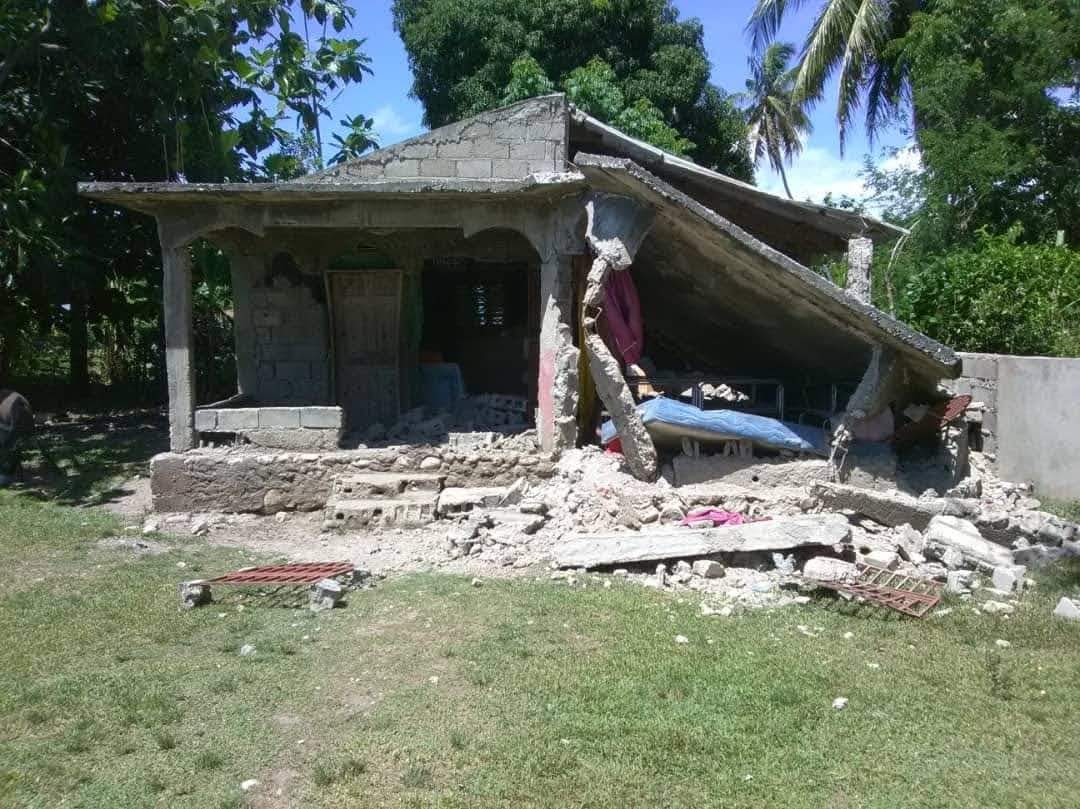
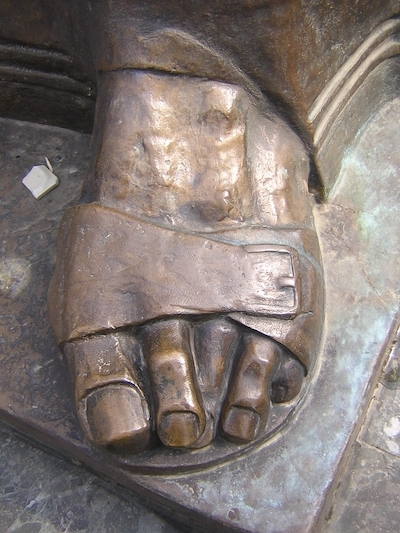
This reality became even clearer after writing to the president of the Dominican Republic. It is estimated that over one million Haitians live in the DR, many illegally. I had requested that the president speak to our Canadian prime minister, Justin Trudeau, about allowing some of the illegal Francophone Haitians to come to New Brunswick to live and work. The UN had requested that the president of DR issue work permits to the employed illegal Haitians but, instead, immigration police and deportation buses from the DR increased in number. These buses began to arrive at 5am, making it impossible for illegal Haitians to go to work. The buses stayed until 11pm and when Haitians were captured while leaving their homes in search of food, they were put in a detention centre for days, receiving very little care. I was sent live videos of Haitians being beaten by immigration police and there were reports of phones and passports being stolen. Finally, when there were enough Haitians to fill a bus bound for Haiti, they were boarded and dropped off at the border into Haiti with no money, ID or phones. Gangs often lie waiting at this drop-off point to potentially kidnap helpless Haitians.
It seems like a formidable task to be a “type of Moses” to the Haitians. At times the burden feels very heavy, but I am reminded that this calling is from God and only because it is his heart to rescue Haitians. Therefore, this is entirely God’s work, and I am simply a vessel that can be instrumental in raising awareness concerning the gravity of this situation. God loves Haitians!
The Kirby Laing Centre for Public Theology in Cambridge. Charity registered in England and Wales. Charity Number: 1191741
Kirby Laing Centre, The New Mill House, Unit 1, Chesterton Mill, French’s Road, Cambridge, CB4 3NP
© 2022 The Kirby Laing Centre for Public Theology in Cambridge